
The Hague: The Royal City by the Sea
The Hague, known locally as Den Haag, is a city that blends historic charm with modern sophistication. As the seat of the Dutch government and home to the Royal Family, The Hague is steeped in a rich political and cultural history. The city offers a unique blend of stately government buildings, picturesque canals, and lush green parks, making it a captivating destination for tourists. Wander through the cobbled streets of the Binnenhof, the oldest House of Parliament still in use, and be transported back to the Middle Ages. Nearby, the Mauritshuis museum houses an impressive collection of Dutch Golden Age paintings, including works by Vermeer and Rembrandt. Don't miss the Peace Palace, the home of the International Court of Justice, an emblem of global harmony and justice. For a more relaxed day, head to Scheveningen Beach, just a short tram ride from the city center. Enjoy the sandy shores, bustling piers, and vibrant beach bars. The Hague is also a shopper's paradise, with everything from high-end boutiques in the historic Passage to quirky shops in the creative Zeeheldenkwartier district. Culinary enthusiasts will delight in The Hague's diverse dining scene. Savor traditional Dutch cuisine in charming cafes or indulge in international flavors from Indonesia, Suriname, and beyond. As evening falls, explore the city's lively nightlife, from cozy pubs to trendy clubs. Whether you're a history buff, a beach lover, or a foodie, The Hague offers something for everyone.
Local tips in The Hague
- Visit the Binnenhof early in the morning to avoid crowds and get the best photos.
- Buy a Museumkaart for unlimited access to most museums in The Hague and the Netherlands.
- Take a tram to Scheveningen Beach for a relaxing day by the sea and fresh seafood.
- Explore the city by bike – it's the best way to see The Hague like a local.
- Spend an afternoon in the historic Zeeheldenkwartier district for unique shops and cafes.
Neighbourhoods in The Hague
The Hague: The Royal City by the Sea
The Hague, known locally as Den Haag, is a city that blends historic charm with modern sophistication. As the seat of the Dutch government and home to the Royal Family, The Hague is steeped in a rich political and cultural history. The city offers a unique blend of stately government buildings, picturesque canals, and lush green parks, making it a captivating destination for tourists. Wander through the cobbled streets of the Binnenhof, the oldest House of Parliament still in use, and be transported back to the Middle Ages. Nearby, the Mauritshuis museum houses an impressive collection of Dutch Golden Age paintings, including works by Vermeer and Rembrandt. Don't miss the Peace Palace, the home of the International Court of Justice, an emblem of global harmony and justice. For a more relaxed day, head to Scheveningen Beach, just a short tram ride from the city center. Enjoy the sandy shores, bustling piers, and vibrant beach bars. The Hague is also a shopper's paradise, with everything from high-end boutiques in the historic Passage to quirky shops in the creative Zeeheldenkwartier district. Culinary enthusiasts will delight in The Hague's diverse dining scene. Savor traditional Dutch cuisine in charming cafes or indulge in international flavors from Indonesia, Suriname, and beyond. As evening falls, explore the city's lively nightlife, from cozy pubs to trendy clubs. Whether you're a history buff, a beach lover, or a foodie, The Hague offers something for everyone.
When is the best time to go to The Hague?
Iconic landmarks you can’t miss
De Pier
Experience the beauty and excitement of De Pier in Scheveningen, where stunning sea views meet delightful dining and vibrant entertainment.
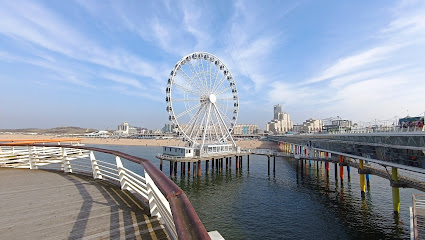
Madurodam
Explore the enchanting Madurodam, a theme park showcasing the Netherlands through detailed miniature models and immersive cultural experiences.
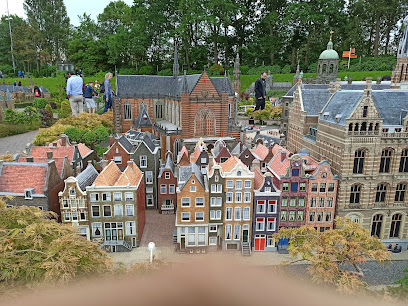
Mauritshuis
Explore the stunning Mauritshuis in The Hague, home to world-renowned Dutch Golden Age masterpieces including Vermeer and Rembrandt.
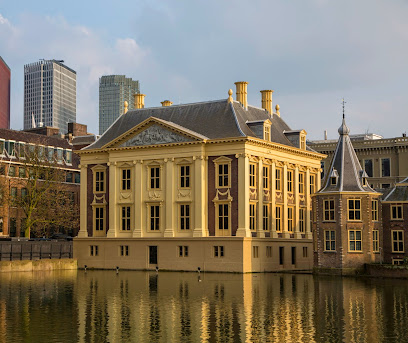
The Pier SkyView
Discover breathtaking views of The Hague and the North Sea at The Pier SkyView, a must-see attraction for every traveler.
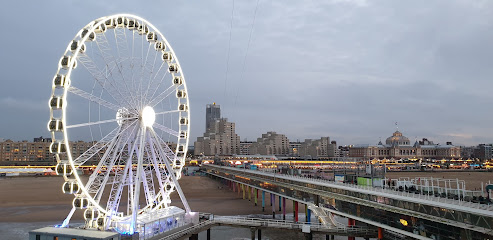
Paleistuin
Discover the serene beauty of Paleistuin, a historic garden in The Hague, where tranquility and nature intertwine for a perfect escape.
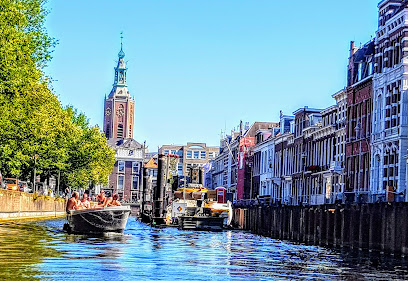
Noordeinde Palace
Discover the elegance of Noordeinde Palace, the royal workplace of the King of the Netherlands, in the heart of The Hague's vibrant culture.
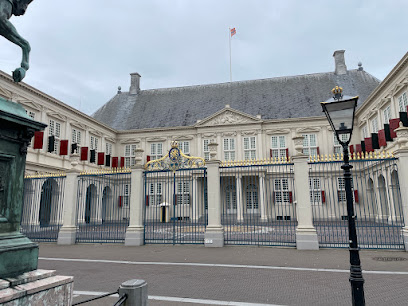
Binnenhof
Explore the historic Binnenhof in The Hague, a stunning blend of medieval architecture and the heart of Dutch parliamentary democracy.
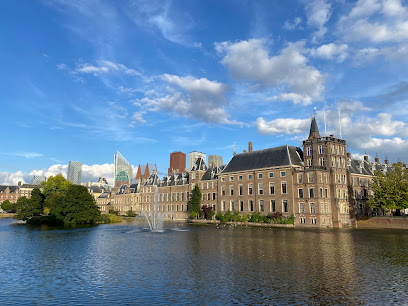
Peace Palace
Visit the Peace Palace in The Hague, where history, law, and tranquility converge in a stunning architectural masterpiece dedicated to global peace.
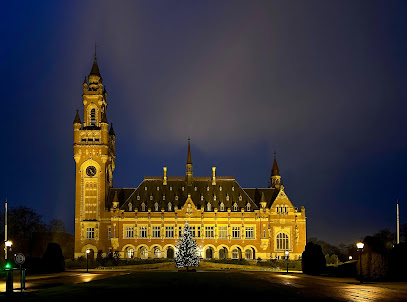
The Hague's Historic Museum
Discover The Hague's Historic Museum, a captivating journey through the city’s rich cultural and historical heritage that every tourist must experience.
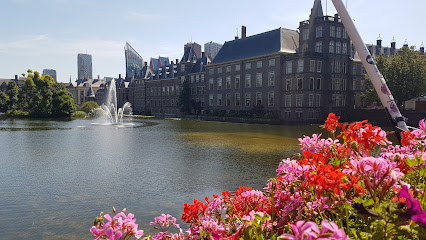
Grote Kerk
Explore the stunning Grote Kerk in The Hague, a majestic Protestant church rich in history and architectural beauty, offering a serene escape in the city's heart.
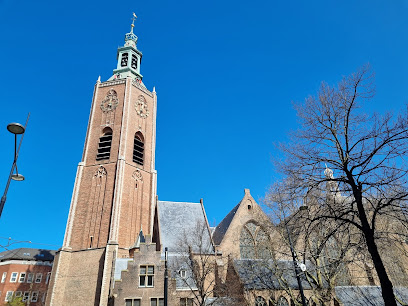
Nationaal Monument Oranjehotel
Explore the Nationaal Monument Oranjehotel, a poignant history museum in The Hague dedicated to the memory of World War II political prisoners and their resilience.
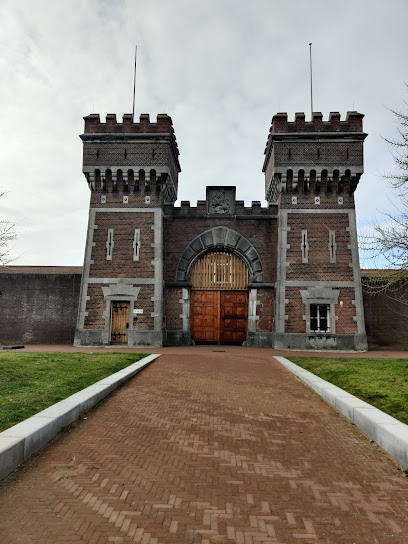
The Hague Municipality
Explore The Hague Municipality, where modern governance meets rich cultural heritage in a stunning architectural setting.
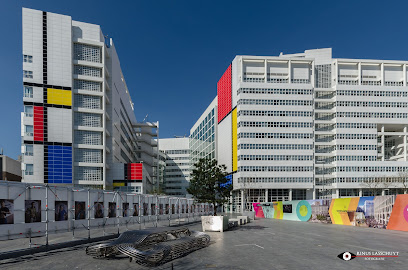
Standbeeld Haagse Harry
Explore Standbeeld Haagse Harry, a beloved statue in The Hague's Grote Markt, celebrating local culture and creativity.
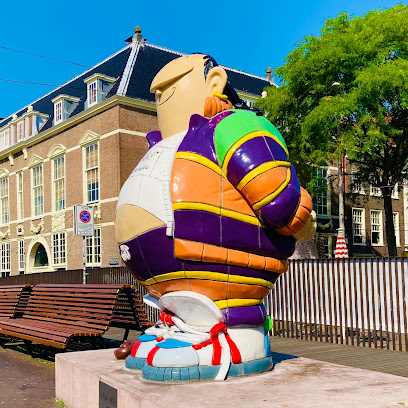
The New Church
Discover The New Church in The Hague, a remarkable concert hall and church blending history, culture, and stunning architecture in one iconic location.
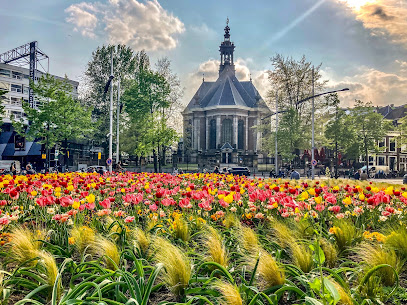
Huis van het Boek
Explore the enchanting world of literature at Huis van het Boek, a museum dedicated to the art and history of books in The Hague.
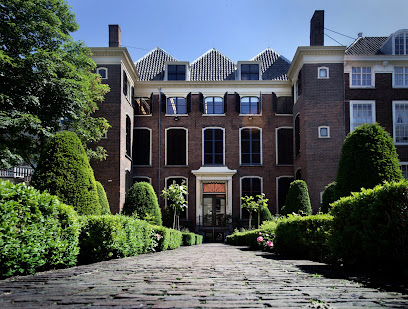
Unmissable attractions to see
Keukenhof
Experience the vibrant beauty of Keukenhof, a stunning botanical garden in Lisse, showcasing millions of tulips and flowers in spectacular seasonal displays.
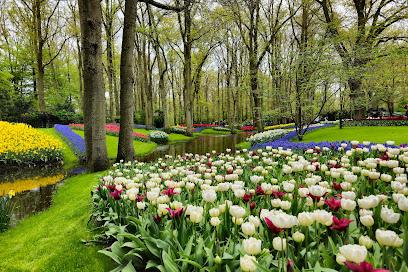
De Pier
Discover De Pier in The Hague: a captivating seaside attraction with thrilling activities, delicious dining, and stunning ocean views.
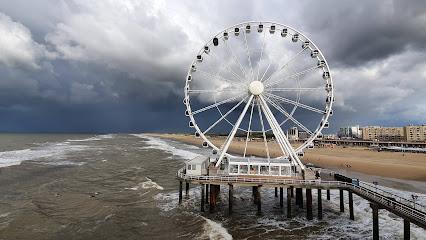
Rotterdam Zoo
Experience the magic of wildlife at Rotterdam Zoo, where conservation meets adventure in a stunning natural setting.
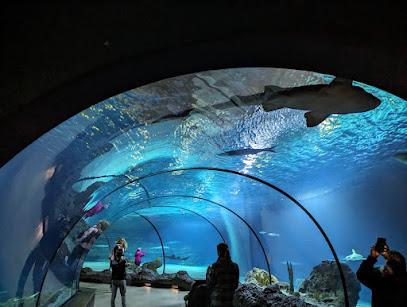
Madurodam
Explore Madurodam, the ultimate miniature park in The Hague, showcasing the Netherlands' iconic landmarks and rich cultural heritage.
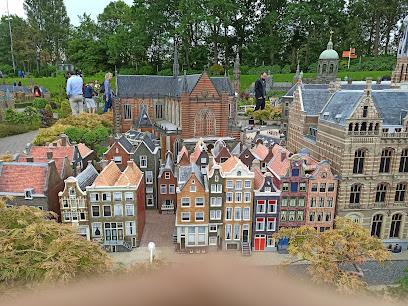
Castle De Haar
Explore the majestic Castle De Haar, a breathtaking historical landmark with stunning gardens, rich history, and cultural events in the heart of Utrecht.
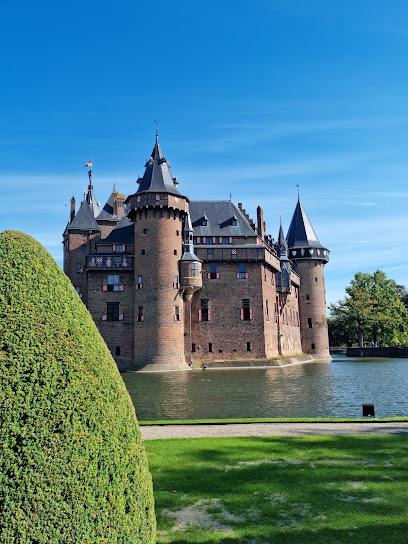
Kijk-Kubus Museum-house
Discover the architectural wonder of Kijk-Kubus Museum-house in Rotterdam, a unique fusion of art and innovative living design.
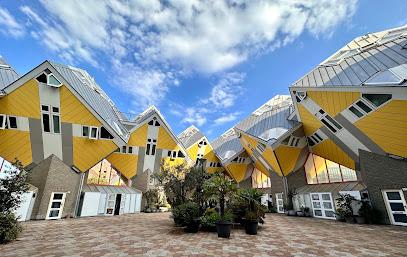
Feyenoord Stadium
Explore the legendary Feyenoord Stadium in Rotterdam, home to thrilling soccer matches and a vibrant sporting culture that captivates fans and tourists alike.
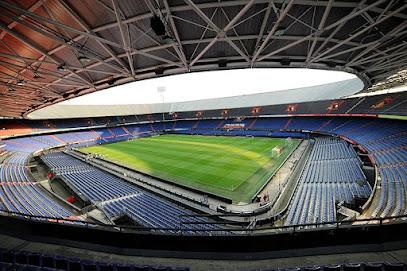
Mauritshuis
Discover the exquisite art of the Dutch Golden Age at the Mauritshuis in The Hague, home to Vermeer and Rembrandt masterpieces.
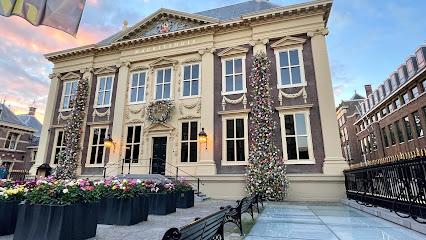
Louwman Museum
Explore the Louwman Museum in The Hague, where the history of automobiles comes to life through a stunning collection of vintage vehicles.
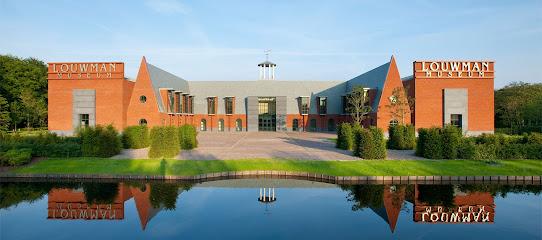
Sea Life Scheveningen
Explore the fascinating underwater world at Sea Life Scheveningen, The Hague's premier aquarium. Encounter marine life and learn about ocean conservation in an engaging setting.
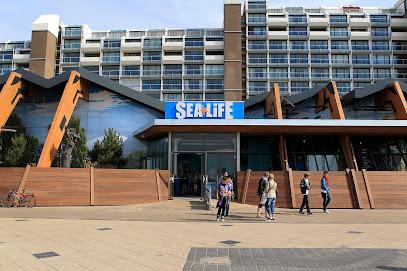
Escher in the Palace
Explore the mesmerizing world of M.C. Escher at Escher in the Palace, a unique art museum in The Hague showcasing his optical illusions and stunning artworks.
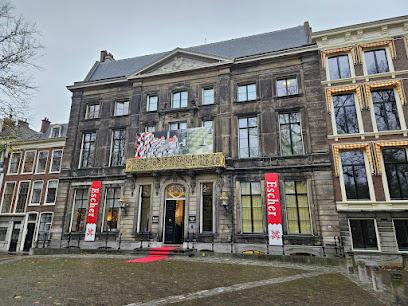
Kunstmuseum The Hague
Immerse yourself in the world of modern art at Kunstmuseum The Hague, where creativity and culture come alive in stunning exhibitions.
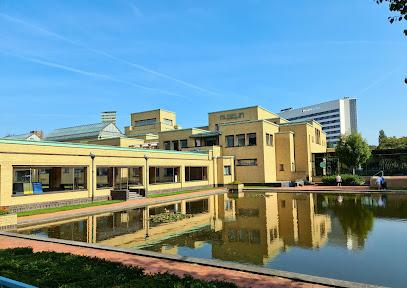
Pathé Schouwburgplein
Immerse yourself in an unparalleled cinematic experience at Pathé Schouwburgplein, Rotterdam's premier movie theater featuring IMAX technology.
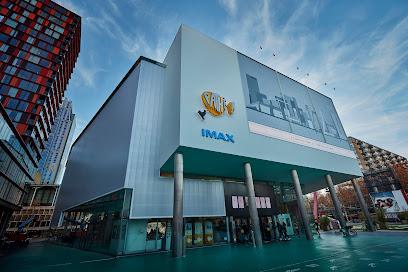
Kunsthal Rotterdam
Discover the artistic brilliance at Kunsthal Rotterdam, where contemporary art and innovative exhibitions await every visitor.
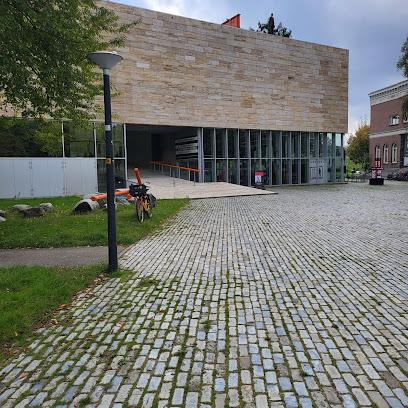
S.S. Rotterdam
Explore the fascinating maritime history and luxurious accommodations aboard the iconic S.S. Rotterdam, a unique floating hotel and museum.
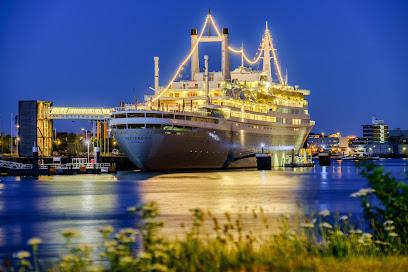
Essential places to dine
EL MAMMA BBQ | Den Haag
Discover Den Haag's culinary delight at El Mamma BBQ—where exceptional grilled flavors meet a cozy dining experience.
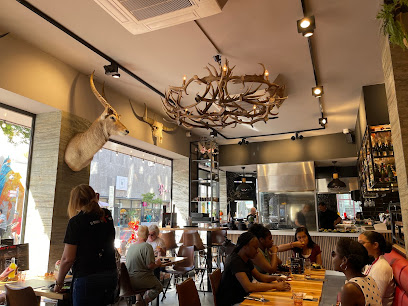
Little V Den Haag
Discover authentic Vietnamese flavors at Little V Den Haag, where modern ambiance meets traditional culinary excellence.
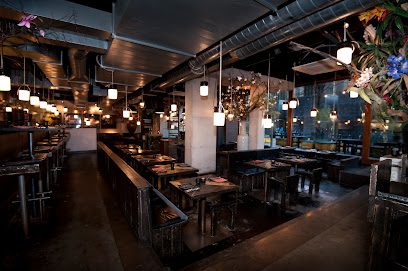
Café Restaurant Rootz
Discover the vibrant culinary scene at Café Restaurant Rootz in The Hague - a perfect blend of bistro charm and nightlife excitement.
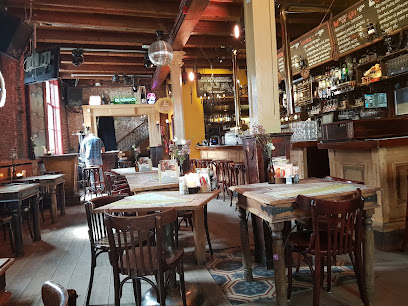
Luden Den Haag
Discover Luden Den Haag: Your go-to spot for delightful breakfasts and lunches in the heart of The Hague.
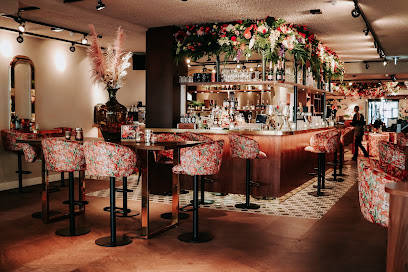
Bar & Restaurant Milú
Discover Bar & Restaurant Milú: A vibrant culinary experience blending modern flavors and lively atmosphere in the heart of The Hague.
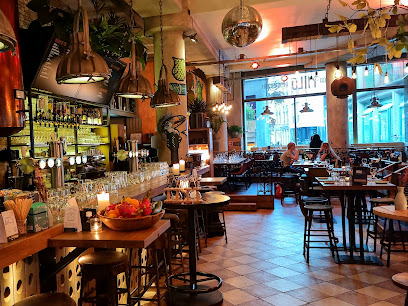
Jamey Bennett
Experience the vibrant flavors of The Hague at Jamey Bennett - where local cuisine meets modern dining in a welcoming atmosphere.
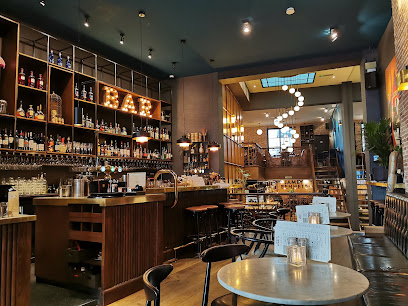
Walter Benedict
Experience exquisite French cuisine at Walter Benedict, a charming brasserie in The Hague known for its delightful breakfasts and warm atmosphere.
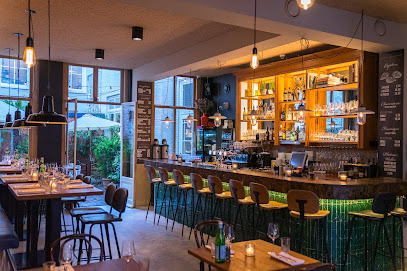
BIT Grill and Café
Savor mouthwatering grilled dishes at BIT Grill and Café, a top barbecue destination in The Hague's vibrant culinary scene.
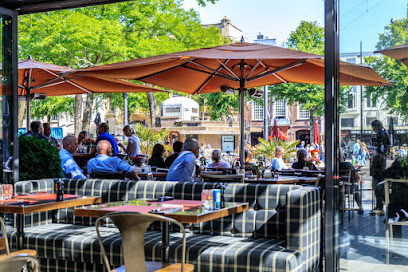
Café Restaurant De Zwarte Ruiter
Discover Café Restaurant De Zwarte Ruiter in The Hague – where delicious food meets vibrant live music for an unforgettable dining experience.
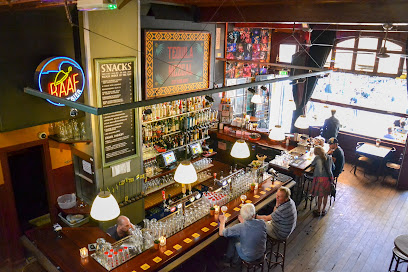
Ristorante Giuliano’s
Experience authentic Italian cuisine at Ristorante Giuliano’s in The Hague – where every dish tells a story.
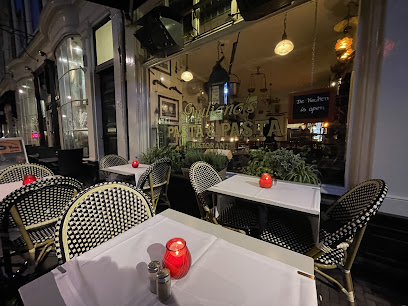
Falafel en Hummus
Discover delicious vegetarian delights at Falafel en Hummus in The Hague—where authentic Middle Eastern flavors meet cozy dining.
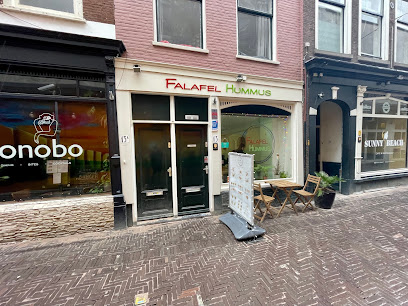
Zebedeus
Discover unique flavors and delightful dining at Zebedeus, a charming restaurant in the heart of The Hague offering an unforgettable culinary experience.
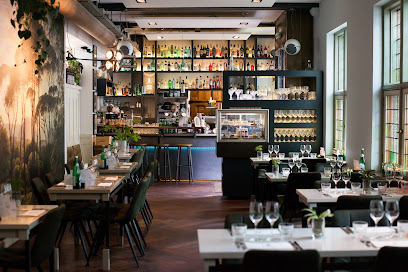
Dekxels
Discover Dekxels in The Hague – where traditional Dutch flavors meet modern culinary creativity for an unforgettable dining experience.
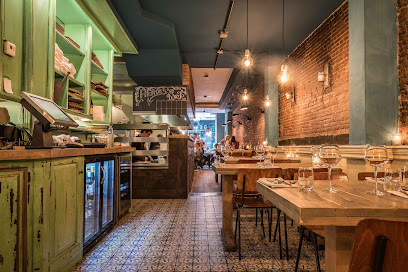
Baladi Manouche
Discover authentic Lebanese flavors at Baladi Manouche in The Hague - a family-friendly gem serving up delicious manakish and mouthwatering desserts.
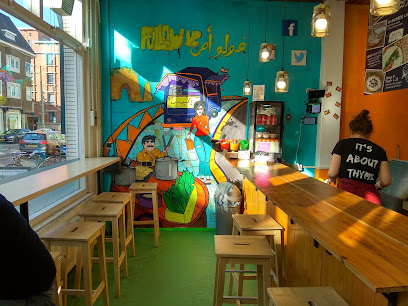
Palmette
Experience the fusion of local flavors and modern cuisine at Palmette in The Hague - where every meal is a celebration of taste.
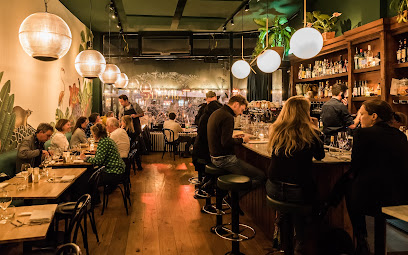
Markets, malls and hidden boutiques
The Passage
Discover The Passage, a historic shopping mall in The Hague, where architectural beauty meets a diverse retail experience.
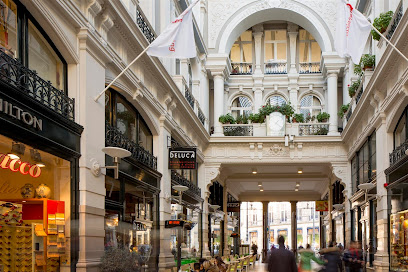
De Bijenkorf (Den Haag)
Discover luxury shopping at De Bijenkorf in The Hague, featuring designer brands, beauty products, and home goods in a stunning setting.
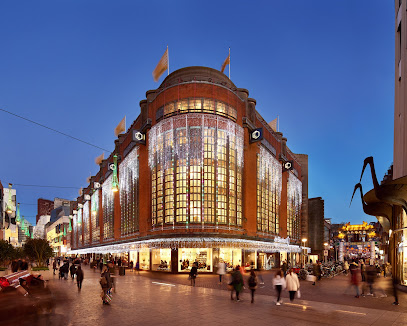
H&M
Explore stylish apparel, trendy accessories, and home goods at H&M in The Hague, your affordable fashion destination.
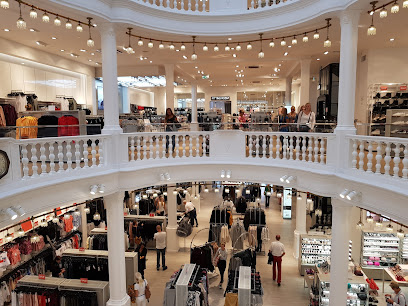
SoLow
Explore SoLow, The Hague's charming gift shop offering unique crafts, party supplies, and more for an unforgettable shopping experience.
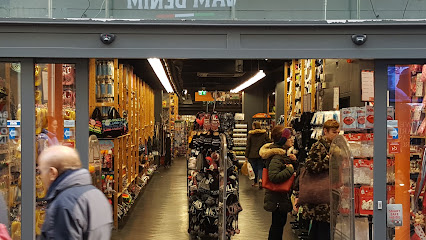
Flying Tiger Copenhagen
Discover the quirky charm of Flying Tiger Copenhagen, a vibrant gift shop in The Hague filled with unique finds for everyone.
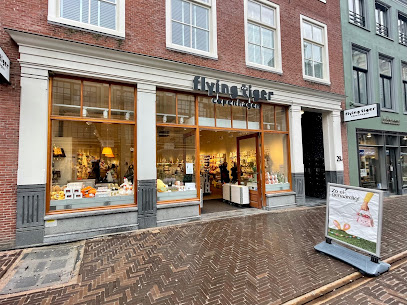
UNIQLO
Discover stylish and affordable fashion at UNIQLO in The Hague, where quality meets innovation in a vibrant shopping atmosphere.
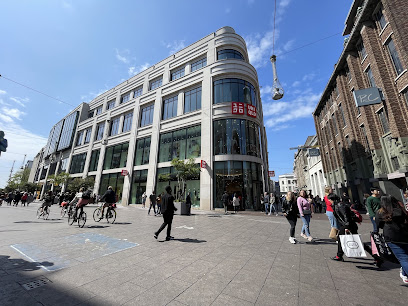
ReShare Store The Hague
Explore eco-friendly fashion and uncover vintage gems at ReShare Store The Hague, a sustainable clothing destination in the heart of the city.
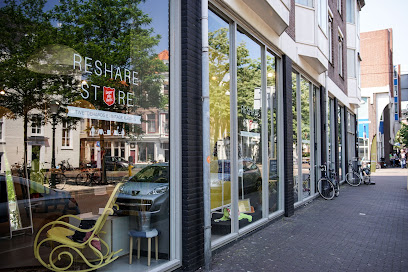
Holland Souvenirs
Discover the essence of Dutch culture at Holland Souvenirs, where unique gifts and traditional crafts await every visitor.
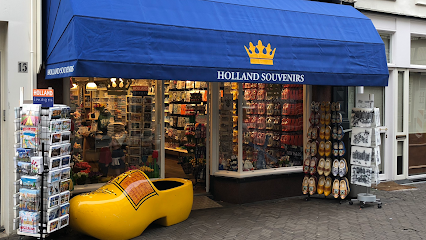
Vintage Island
Explore Vintage Island in The Hague, an enchanting vintage clothing store with unique retro finds and a cozy atmosphere to satisfy every fashionista's dream.
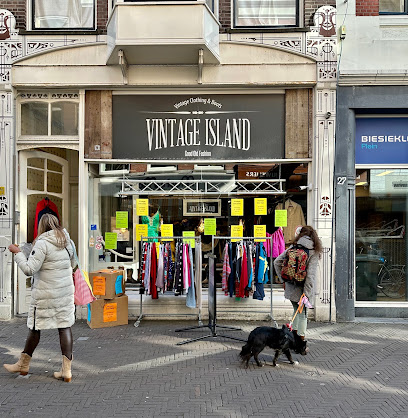
G-Star RAW Store
Discover cutting-edge denim and stylish apparel at G-Star RAW Store in The Hague, where fashion meets sustainability in a modern shopping experience.
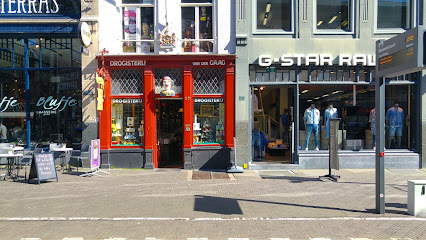
Berlage Office & Gift
Explore Berlage Office & Gift, a gem in The Hague offering unique gifts, stationery, leather goods, and more for every traveler.
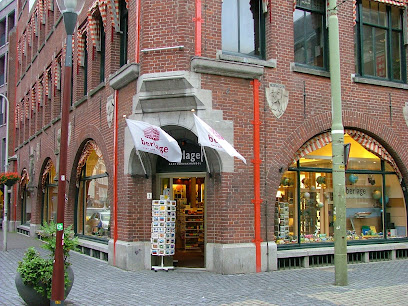
The Body Shop
Discover The Body Shop in The Hague: Your destination for ethical beauty and sustainable cosmetics, where every purchase supports a better world.
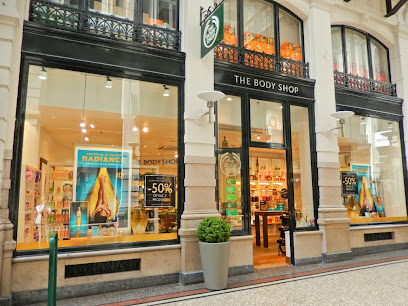
Little Green Shop
Explore the unique Little Green Shop in The Hague for charming dried flowers, vintage clothing, and sustainable home goods.
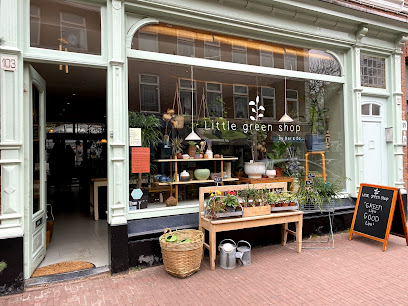
WWen | Duurzame mode
Explore WWen in The Hague for sustainable fashion and unique gifts, blending style with eco-consciousness in a charming boutique setting.
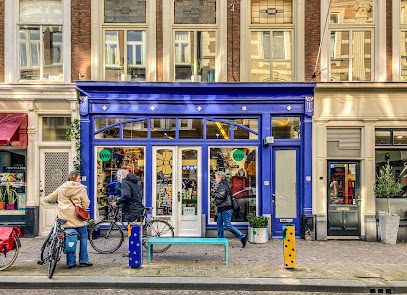
Wauw Warenhuis
Explore Wauw Warenhuis in The Hague for unique gifts, home goods, and stunning dried flowers that capture the essence of Dutch design.
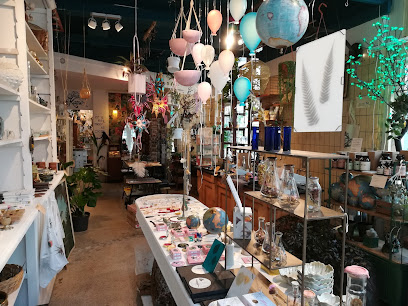
Essential bars & hidden hideouts
The Fiddler
Experience the lively atmosphere and delicious offerings at The Fiddler, a premier pub in The Hague catering to both locals and travelers.
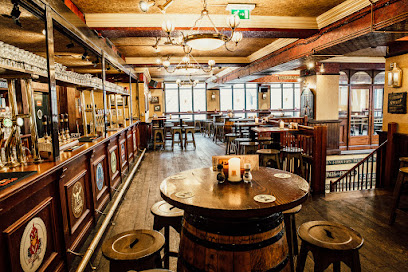
Millers
Experience the vibrant nightlife and culinary delights at Millers, The Hague's premier bar and restaurant offering cocktails, wines, and live entertainment.
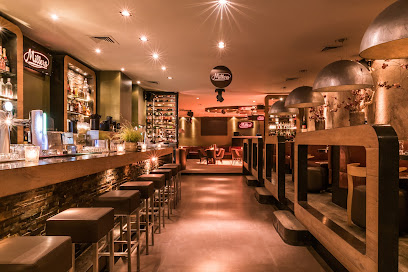
O'Casey's Irish Pub & Restaurant
Discover the authentic taste of Ireland at O'Casey's Irish Pub & Restaurant in The Hague, where hearty meals and friendly faces await.
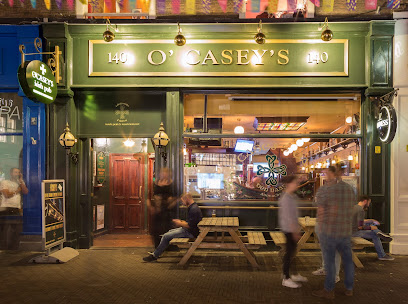
Huppel The Pub
Experience the heart of The Hague at Huppel The Pub, where quality drinks and a friendly atmosphere await.
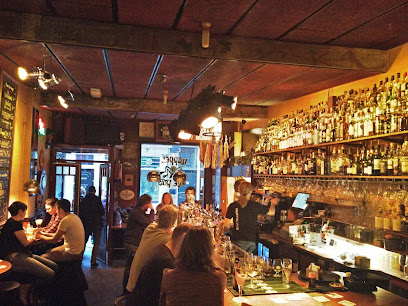
Vavoom!
Discover the tropical oasis of Vavoom! in The Hague, where exotic cocktails and lively atmosphere create an unforgettable nightlife experience.
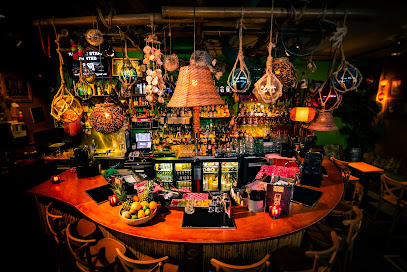
Angie's Kitchen | Bar, Restaurant en Beer Garden
Experience the vibrant atmosphere and delicious cuisine at Angie's Kitchen, The Hague's premier bar and restaurant with a charming beer garden.
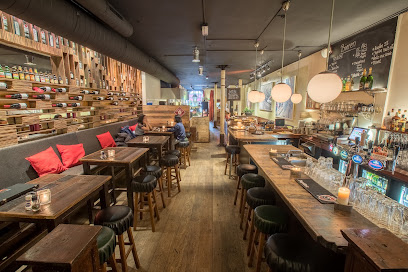
Wicked Wines
Discover a world of exquisite wines and delightful pairings at Wicked Wines, a charming wine bar in the heart of The Hague.
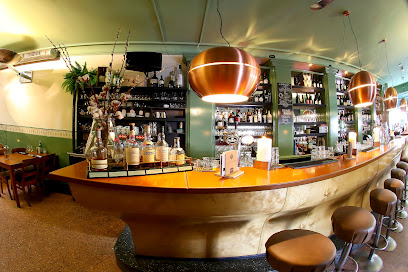
Murphy's Law
Discover Murphy's Law, a lively Irish pub and jazz club in The Hague, where live music, great food, and a warm atmosphere await.
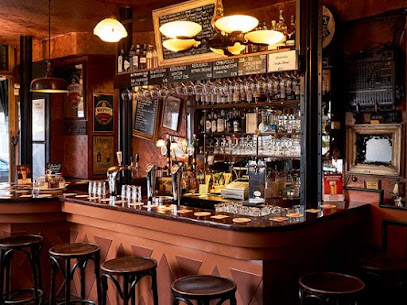
Sixpence
Discover a vibrant Irish pub experience in The Hague, offering delicious food, a wide selection of beers, and a lively atmosphere for all.
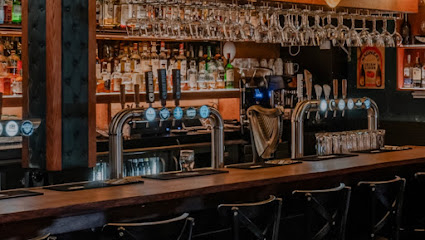
Gekke Geit
Discover Gekke Geit, a cozy bar in The Hague offering a delightful atmosphere, diverse drinks, and a taste of local culture.
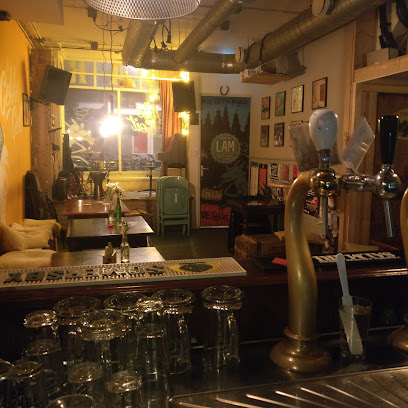
Café Restaurant September
Experience the best of Dutch cuisine and fine wines at Café Restaurant September, a top destination in The Hague's vibrant dining scene.
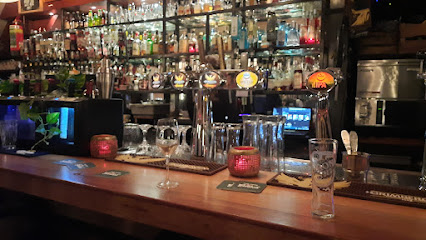
Café Happy End
Discover the cozy charm of Café Happy End in The Hague, where delightful drinks and a warm atmosphere await every visitor.
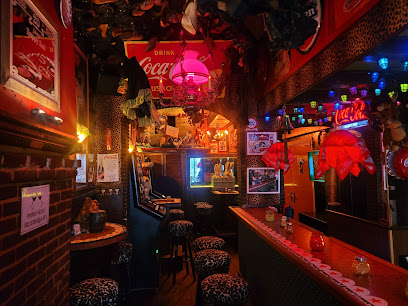
The Five Points Bar & Drink Society
Experience innovative cocktails and a vibrant nightlife at The Five Points Bar & Drink Society in The Hague, where every sip is a celebration.
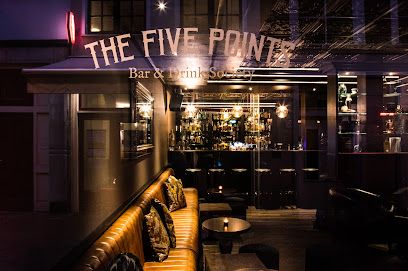
Little Prince
Experience the cozy atmosphere and delicious flavors of Little Prince, a beloved pub and diner in the heart of The Hague, perfect for relaxing and enjoying great food.
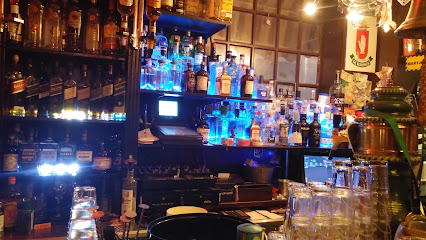
Travel experiences inspired by this city
Explore more travel diariesLocal Phrases
-
- HelloHallo
[ha-lo] - GoodbyeTot ziens
[tot zeens] - YesJa
[ya] - NoNee
[nee] - Please/You're welcomeAlstublieft
[ahl-stu-bleeft] - Thank youDank je
[dank ye] - Excuse me/SorrySorry
[soh-ree] - How are you?Hoe gaat het?
[hoo gat het] - Fine. And you?Goed. En met jou?
[hut. en met yow] - Do you speak English?Spreekt u Engels?
[spreekt oo en-gels] - I don't understandIk begrijp het niet
[ik buh-greyp het neet]
- HelloHallo
-
- I'd like to see the menu, pleaseMag ik de menukaart zien, alstublieft
[mag ik de menu-kart seen, ahl-stu-bleeft] - I don't eat meatIk eet geen vlees
[ik ayt kheyn vlays] - Cheers!Proost!
[prohst] - I would like to pay, pleaseIk wil graag betalen, alstublieft
[ik vil khrahg buh-tah-len, ahl-stu-bleeft]
- I'd like to see the menu, pleaseMag ik de menukaart zien, alstublieft
-
- Help!Help!
[help] - Go away!Ga weg!
[ga vekh] - Call the Police!Bel de politie!
[bel de poh-lee-see] - Call a doctor!Bel een dokter!
[bel ayn dohk-ter] - I'm lostIk ben verdwaald
[ik ben fer-dwahlt] - I'm illIk ben ziek
[ik ben zik]
- Help!Help!
-
- I'd like to buy...Ik wil graag kopen...
[ik vil khrahg koh-pen] - I'm just lookingIk kijk alleen maar even rond
[ik kike ayl-uhn mahr ay-ven ront] - How much is it?Hoeveel kost het?
[hu-vel kost het] - That's too expensiveDat is te duur
[dat is tuh dur] - Can you lower the price?Kunt u de prijs verlagen?
[kunt oo de prise vuh-rah-ghen]
- I'd like to buy...Ik wil graag kopen...
-
- What time is it?Hoe laat is het?
[hoo laht is het] - It's one o'clockHet is een uur
[het is ayn oor] - Half past (10)Half elf
[half elf] - MorningOchtend
[okh-tent] - AfternoonMiddag
[mid-dahkh] - EveningAvond
[ah-vohnt] - YesterdayGisteren
[khis-ter-uhn] - TodayVandaag
[vahn-dakh] - TomorrowMorgen
[mohr-khern] - 1Een
[ayn] - 2Twee
[tvay] - 3Drie
[dree] - 4Vier
[veer] - 5Vijf
[vayf] - 6Zes
[zehs] - 7Zeven
[zay-ven] - 8Acht
[ahkht] - 9Negen
[nay-khen] - 10Tien
[teen]
- What time is it?Hoe laat is het?
-
- Where's a/the...?Waar is de...
[var is de] - What's the address?Wat is het adres?
[vat is het ah-dres] - Can you show me (on the map)?Kunt u mij laten zien (op de kaart)?
[kunt oo may la-ten seen (op de kart)] - When's the next (bus)?Wanneer is de volgende (bus)?
[ven-ehr is de vol-hen-duh (bus)] - A ticket (to ....)Een kaartje (naar ....)
[ayn kart-yuh (nar)]
- Where's a/the...?Waar is de...
History of The Hague
-
The Hague, known as 's-Gravenhage or Den Haag in Dutch, was founded in 1230 by Count Floris IV of Holland. Originally a hunting residence, it evolved into a governmental center as the Counts of Holland established their administrative seat there. The village grew around the Binnenhof, a complex of buildings that still serves as the Dutch parliament's seat.
-
The Binnenhof is a historic complex that has been the heart of Dutch politics for centuries. The Ridderzaal (Hall of Knights), built in the 13th century, is the most iconic building within the Binnenhof. It hosts the annual Prinsjesdag, where the monarch delivers the 'Speech from the Throne,' outlining the government's agenda for the coming year.
-
The Hague played a pivotal role during the Eighty Years' War (1568–1648), a revolt against Spanish rule. As the conflict progressed, the city became a refuge for Protestant leaders and served as a central hub for the rebellion. In 1581, the States General of the Netherlands declared independence from Spain in the Act of Abjuration, marking the birth of the Dutch Republic.
-
The Peace Palace, completed in 1913, is one of The Hague's most significant landmarks. Funded by Andrew Carnegie, it houses the International Court of Justice, the Permanent Court of Arbitration, and the Hague Academy of International Law. The Peace Palace symbolizes The Hague's long-standing reputation as the 'City of Peace and Justice.'
-
During World War II, The Hague was occupied by Nazi Germany. The city suffered significant damage, particularly in the notorious 'Bombardment of Bezuidenhout' in 1945, which aimed to destroy V-2 rocket launch sites but instead devastated a residential area. Post-war reconstruction efforts restored much of the city's historical architecture.
-
Established in 2002, the International Criminal Court (ICC) is another testament to The Hague's role in global justice. The ICC prosecutes individuals for crimes of genocide, war crimes, and crimes against humanity. The court's presence reinforces The Hague's status as an international hub for legal and humanitarian efforts.
-
The Mauritshuis, an art museum housed in a 17th-century mansion, is renowned for its collection of Dutch Golden Age paintings, including works by Vermeer, Rembrandt, and Hals. Escher in Het Paleis, dedicated to the works of M.C. Escher, showcases the artist's mathematically inspired prints and drawings, highlighting The Hague's rich cultural heritage.
-
In recent decades, The Hague has continued to evolve as a modern city while preserving its historical roots. It hosts numerous international organizations, including Europol and the Organisation for the Prohibition of Chemical Weapons (OPCW). The city's blend of historical landmarks and modern infrastructure underscores its dynamic and multifaceted character.
The Hague Essentials
-
The Hague is well-connected both domestically and internationally. The nearest major airport is Amsterdam Schiphol Airport (AMS), located about 45 kilometers away. From the airport, you can take a direct train to The Hague Central Station (Den Haag Centraal), which takes around 30 minutes. Alternatively, Rotterdam The Hague Airport (RTM) is another option, located approximately 20 kilometers from the city. From Rotterdam The Hague Airport, you can take a bus or taxi to The Hague. For those traveling by train within Europe, The Hague is accessible via high-speed trains such as Thalys and Eurostar.
-
The Hague has an efficient public transportation system, including trams, buses, and trains operated by HTM and NS. The OV-chipkaart is a convenient way to pay for public transport. Bicycles are also a popular mode of transport, with plenty of rental options and dedicated bike lanes. Taxis and ride-sharing services like Uber are available but can be more expensive. For exploring nearby cities, trains run frequently between The Hague and other major Dutch cities like Amsterdam, Rotterdam, and Utrecht.
-
The official currency in the Netherlands is the Euro (EUR). Credit and debit cards are widely accepted, but it’s advisable to carry some cash for small purchases or in places where cards are not accepted. ATMs are readily available throughout the city, and contactless payments are commonly used. Keep in mind that some smaller establishments may not accept credit cards, so having cash is always a good backup.
-
The Hague is generally a safe city for tourists, but it’s always wise to remain vigilant. Petty crimes like pickpocketing can occur, especially in crowded areas and on public transportation. Areas such as the Schilderswijk neighborhood have higher crime rates compared to other parts of the city. It’s best to avoid these areas, especially at night. Always keep an eye on your belongings and be cautious of your surroundings.
-
In case of emergency, dial 112 for immediate assistance from police, fire services, or medical help. The Hague has several hospitals and clinics, including HMC Westeinde and Bronovo Hospital. Pharmacies are widely available for minor health issues. It’s recommended to have travel insurance that covers medical emergencies. For lost or stolen items, report to the local police station.
-
Fashion: Do dress smart-casual when dining out or attending events. Avoid overly casual attire in upscale settings. Religion: Do respect local religious sites and practices. Avoid disruptive behavior in places of worship. Public Transport: Do validate your OV-chipkaart before boarding. Don’t occupy priority seats meant for the elderly or disabled. Greetings: Do greet people with a handshake and make eye contact. A simple 'hallo' or 'goedendag' is polite. Eating & Drinking: Do try local dishes like herring and stroopwafels. Don’t leave a tip unless the service was exceptional, as tipping is not obligatory but appreciated.
-
To experience The Hague like a local, visit the Haagse Markt, one of the largest outdoor markets in Europe, for fresh produce and a variety of goods. Take a stroll through the city’s parks, such as the Haagse Bos or Westbroekpark. Don’t miss the seaside resort Scheveningen, where you can enjoy the beach and local seafood. Engage with locals in cafes and bars, as they are often friendly and willing to share insights about the city.
Nearby Cities to The Hague
-
Things To Do in Delft
-
Things To Do in Leiden
-
Things To Do in Rotterdam
-
Things To Do in Haarlem
-
Things To Do in Amsterdam
-
Things To Do in Utrecht
-
Things To Do in Amersfoort
-
Things To Do in Antwerp
-
Things To Do in Knokke-Heist
-
Things To Do in Eindhoven
-
Things To Do in Arnhem
-
Things To Do in Nijmegen
-
Things To Do in Zeebrugge
-
Things To Do in Blankenberge
-
Things To Do in Mechelen



















